Sign up to our newsletter
Receive news on the Alliance, upcoming events, and members activities in Sustainable Fashion


Established in 1919, the International Labour Organization (ILO) is devoted to promoting social justice and internationally recognized human and labour rights, pursuing its founding mission that social justice is essential to universal and lasting peace.
The ILO is the leading global authority on the world of work and the UN’s only tripartite agency, bringing together governments, employers and workers of 187 member States to set labour standards, develop policies and devise programmes promoting decent work for all women and men.
Four strategic objectives are at the heart of the ILO’s Decent Work Agenda:
A just transition towards environmentally sustainable economies and societies is a critical part of the ILO’s agenda.
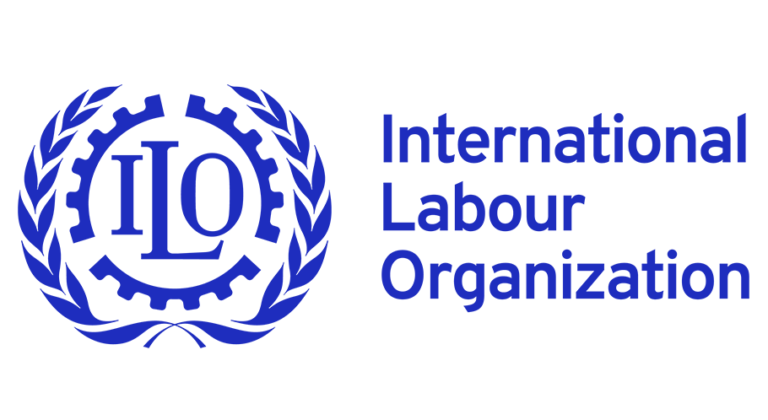
The ILO contributes to a more sustainable fashion industry all along the textiles, clothing, leather and footwear (TCLF) supply chains through technical assistance and training in more than 30 countries. Over the years, the ILO has developed a series of programmes in the industries to improve wages and working conditions, enhance productivity at factory level, and strengthen social dialogue and sound industrial relations.
Further up the supply chain, the ILO provides assistance on issues such as informality, safety and health, and child and forced labour. As part of a holistic approach to promote sustainable enterprises, the ILO has integrated components on resource productivity and cleaner production in some of its enterprise capacity-building programs.
The ILO-International Finance Corporation (IFC) Better Work Programme operates in more than 1,700 factories and benefits 2.4 million garment workers – primarily women – and their families in nine countries. Better Work mobilizes governments, global brands, unions and employer’s associations to improve working conditions, drive competitiveness and help lift millions of people out of poverty.
Better work’s approach creates lasting, positive change through building the capacity of tripartite constituents and offering factory services such as the assessments, training, advocacy and research that can positively impact policies, attitudes, and behaviours.
Better Work also builds bridges between the public and private sectors through its engagement with approximately 150 international brands which source from factories where Better Work is active. The Better Work Academy also helps to scale the programme’s reach beyond the apparel sector and to countries where the program is not currently active.
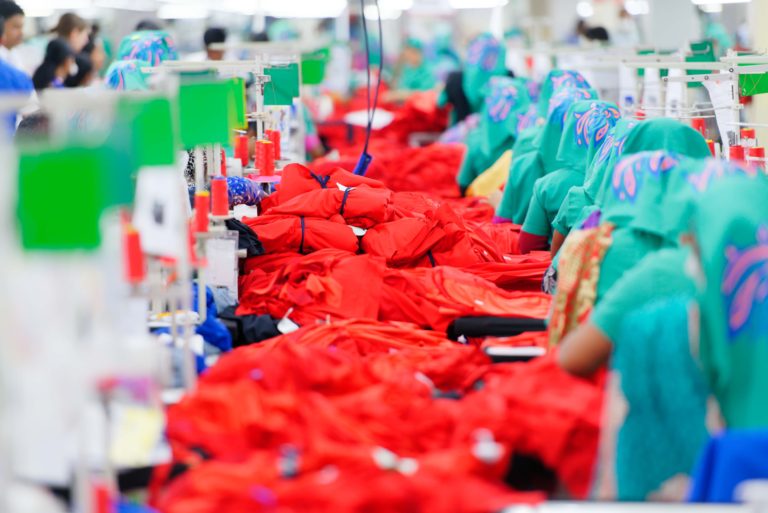
Since 1937, the ILO has been promoting social dialogue and consensus building among governments, employers and workers to tackle emerging and key issues in the industry. The ILO assists members to develop policies and programmes aimed at enhancing economic opportunities and improving working conditions in the sector.
Global Sectoral Meetings
Government, employers and workers representatives gather to discuss and agree on policy recommendations for developing a more productive and green industry. Recommendations adopted by consensus provide guidance to constituents for the development of sectoral policies and programmes. These include:
Research
The ILO conducts research on recent trends and developments in the sector to enhance knowledge and contribute for policy development. A recent ILO study on the Future of Work in Textiles, Clothing, Leather and Footwear analysed how climate change, technological advances, globalization and demographic shifts have an impact on employment and on workers and enterprises operating along the supply chain of the fashion industry.
International labour standards– Conventions, Protocols and Recommendations – provide a framework for all ILO member States to realize decent work principles. Conventions and Protocols are legally binding instruments that are incorporated into the national law once ratified by ILO member States. They lay down the basic minimum social standards agreed upon by all players in the global economy.
ILO supports Member States to ratify and effectively implement international labour standards in the sector, particularly those related to the fundamental principles and rights at work:
Elimination of forced and child labour
The ILO develops several projects to combat forces and child labour in the industries. It provides technical assistance to member States for the ratification and effective implementation of ILO Minimum Age Convention No. 138 (1973) and its Recommendation No. 146; the Worst Forms of Child Labour Convention No. 182 (1999) and its Recommendation No. 190; the Forced Labour Convention, 1930 (No. 29) and its Recommendation No. 35; the Abolition of Forced Labour Convention, 1957 (No. 105); the Protocol of 2014 to the Forced Labour Convention, 1930 and the Forced Labour (Supplementary Measures) Recommendation, 2014 (No. 203). The ILO is member of and contributes to the Global Alliance to Eradicate Forced Labour, Modern Slavery, Human Trafficking and Child Labour (Alliance 8.7).
Effective recognition of the right to collective bargaining and freedom of association
Freedom of association and collective bargaining are among the founding principles of the ILO. Technical assistance is provided to member States for the ratification and effective implementation of the Freedom of Association and Protection of the Right to Organise Convention, 1948 (No. 87) and the Right to Organise and Collective Bargaining Convention, 1949 (No. 98). At the country level, several development cooperation projects assist ILO constituents in building sound industrial relations and strengthening collective bargaining in the textile and garment sector, and therefore contributing to social and labour compliance through improved labour market governance, which allows the industry to expand in a socially sustainable manner and create decent jobs.
Elimination of discrimination in employment
The ILO provides technical assistance to member States for the ratification and effective implementation of ILO’s Equal Remuneration Convention, 1951 (No. 100) and its Recommendation No. 90 as well Discrimination (Employment and Occupation) Convention, 1958 (No. 111) and its Recommendation No. 111. At factory level, ILO development cooperation programmes assist managers and workers to combat discrimination practices and prevent harassment and violence at work.
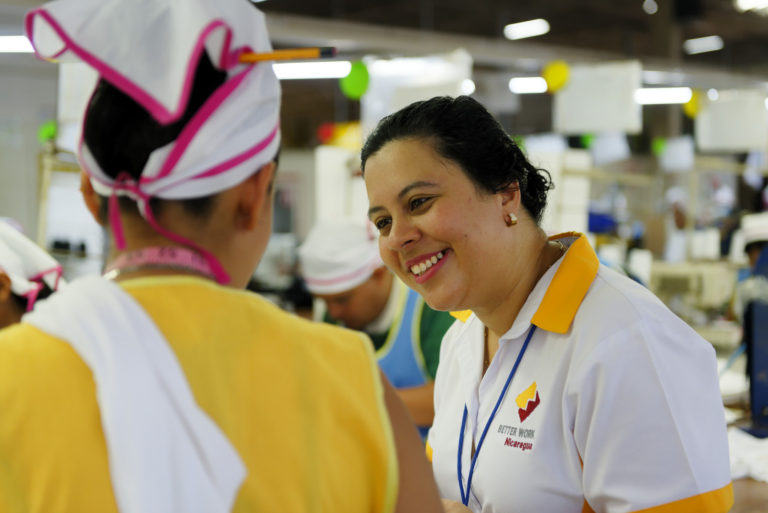

The ILO works directly to improve wages, working conditions, and labour relations in textile and garment industries. ILO development cooperation assists constituents in strengthening systems for participatory and evidence-based minimum wage fixing and wages policy, with the objective to address unduly low pay and reduce wage inequality. For example, the ILO Labour Standards in Global Supply Chains project sought to address a range of decent work deficits in global supply chains in the garment sector in Asia, particularly those related to minimum wages, collective bargaining, and compliance with labour standards.
The ILO provides technical assistance to member States for the ratification and effective implementation of ILO’s Minimum Wage Fixing Convention, 1971 (No. 131) and its Recommendation No. 135.
The ILO provides technical assistance to member States for the ratification and effective implementation of several ILO Conventions and Recommendations dealing with Occupational Safety and Health.
In addition, the ILO is implementing the Vision Zero Fund (VZF) in the garment sector in Ethiopia and Myanmar. The VZF is a multi-stakeholder initiative aims at preventing work-related deaths, injuries and diseases in sectors operating in or aspiring to join global supply chains (GSCs).
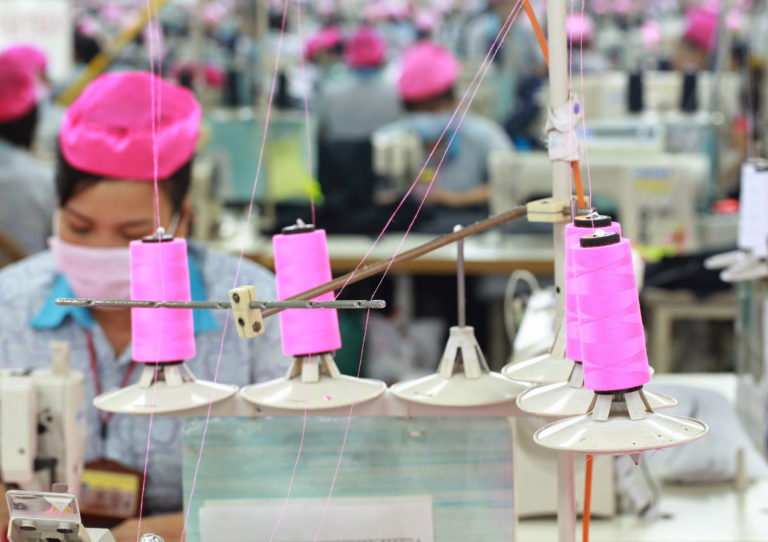
The Sustaining Competitive and Responsible Enterprises (SCORE) programme is a global technical assistance programme of the ILO that supports small and medium sized enterprises (SMEs) to grow and contribute to creation of more and better jobs by improving their competitiveness through better quality, productivity and workplace practices.
SCORE certified trainers provide training to managers and employees in the participating enterprises on specific SCORE modules applying a combination of class-room training and on-site coaching to meet the specific needs of individual enterprises. SCORE is particularly relevant for enterprises (between 50-250 employee size) facing internal challenges affecting its market competitiveness such as quality, productivity, energy inefficient production practices, environmental pollution, production waste, health and safety or human resource management.
The Tripartite Declaration of Principles concerning Multinational Enterprises and Social Policy (MNE Declaration) provides direct guidance to multinational and national enterprises, including in the sectors serving the fashion industry, on social policies and sustainable workplace practices.
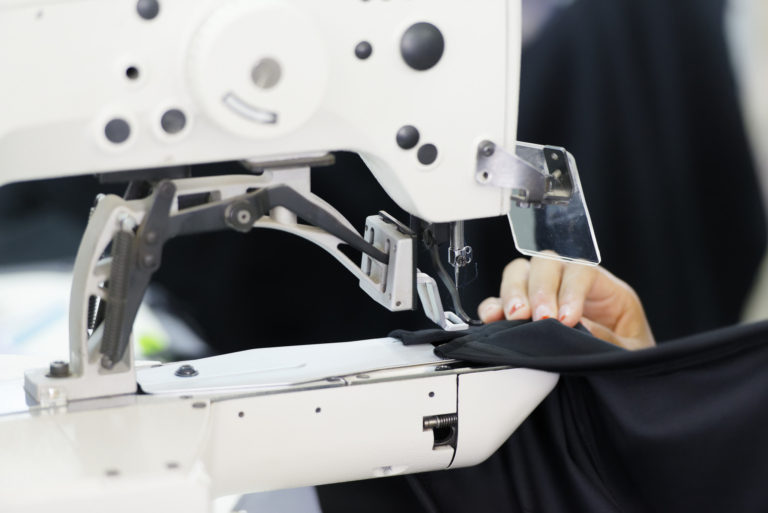
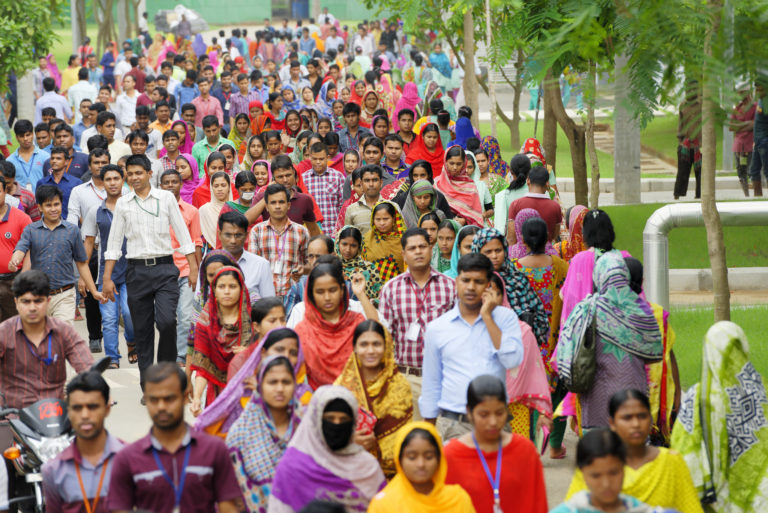
Gender equality is promoted in all ILO programmes described above. The ILO, UN Women and the OECD led the Equal Pay International Coalition (EPIC). The Coalition’s goal is to achieve equal pay for women and men everywhere. By bringing together a diverse set of actors with different areas of focus and expertise, EPIC supports governments, employers, workers, and their organizations to make concrete and coordinated progress towards this goal. EPIC is currently the only multi-stakeholder partnership working to reduce the gender pay gap at the global, regional and national levels.
Receive news on the Alliance, upcoming events, and members activities in Sustainable Fashion
